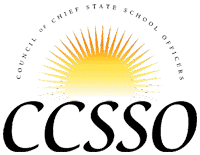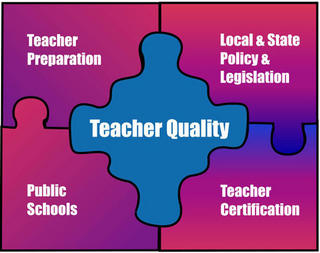Note to CCSSO: Read "The Onion"
 This morning's email included a missive from the Council of Chief State Schools Officers telling me that my use of their logo on a recent post (Early Christmas for the States) was improper because it violated their copyright (er, trademark?) and implied an endorsement of the contents of the post.
This morning's email included a missive from the Council of Chief State Schools Officers telling me that my use of their logo on a recent post (Early Christmas for the States) was improper because it violated their copyright (er, trademark?) and implied an endorsement of the contents of the post.Apparently, the folks at the Council of Chief State School Officers don't read The Onion -- or the New York Times. Maybe they should, because then they'd remember how much fun everyone made of the White House for saying they couldn't use the presidential seal.
"You might have thought that the White House had enough on its plate late last month...but it found time to add another item to its agenda - stopping The Onion, the satirical newspaper, from using the presidential seal."Now, I'm not The Onion, and the Chiefs aren't the White House, but still...it seems like their chief of staff might have better things to do than bothering someone who's drinking Diet Coke for breakfast and is still in his PJs. I mean, I'm barely awake here.
-- New York Times Protecting the presidential seal. No joke.
In the meantime -- thanks, Onion -- I'm going to ask the Chiefs to give me permission to use their logo, add a clarification to the original post stating that the Chiefs may or may not support the changes to the HQT provisions, and hope that they go back to more important things like helping states run and fix our schools.



















